
Blue Öyster Cult is an American hard rock band formed on Long Island, New York, in the hamlet of Stony Brook in 1967. The band has sold 25 million records worldwide, including 7 million in the United States. The band's fusion of hard rock with psychedelia, and penchant for occult, fantastical and tongue-in-cheek lyrics, had a major influence on heavy metal music. They developed a cult following and, while achieving mainstream hits like "(Don't Fear) The Reaper" (1976) and "Burnin' for You" (1981), their commercial success was limited. Both songs, and others such as "Godzilla" (1977), remain classic rock radio staples. The band were early adopters of the music video format, and their videos received heavy rotation on MTV in its early period.

Urge Overkill is an American alternative rock band, formed in Chicago, consisting of Nathan Kaatrud, who took the stage name Nash Kato (vocals/guitar), and Eddie "King" Roeser. They are widely known for their song "Sister Havana" and their cover of Neil Diamond's "Girl, You'll Be a Woman Soon", which was used in Quentin Tarantino's Pulp Fiction. Oui, their latest album, was released in 2022.
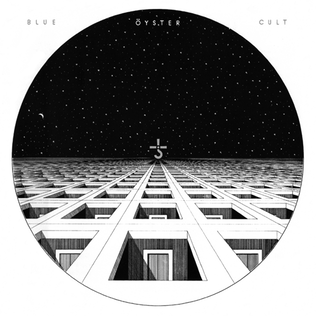
Blue Öyster Cult is the debut studio album by the American rock band Blue Öyster Cult, released in January 1972 by Columbia Records. The album featured songs such as "Cities on Flame with Rock and Roll", "Stairway to the Stars", and "Then Came the Last Days of May", all of which the band still plays regularly during its concerts. Despite positive reviews, the album failed to chart for some time before finally cracking the Billboard 200 chart on May 20, 1972, peaking at No. 172. Blue Öyster Cult toured with artists such as The Byrds, Alice Cooper and the Mahavishnu Orchestra to support the album.

Ace of Spades is the fourth studio album by English rock band Motörhead, released in October 1980 via Bronze Records. It is the band's most commercially successful album, peaking at number four on the UK Albums Chart and reaching gold status in the UK by March 1981. It was preceded by the release of the title track as a single in October, which peaked in the UK Singles Chart at No. 15 in early November.
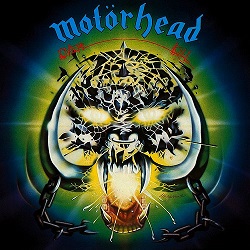
Overkill is the second studio album by English rock band Motörhead, released in March 1979. It was the band's first album with Bronze Records. Kerrang! magazine listed the album at number 46 among the "100 Greatest Heavy Metal Albums of All Time". American thrash metal band Overkill was named after this album.

Bomber is the third studio album by English rock band Motörhead. It was released on 12 October 1979 by Bronze Records, their second with the label.

No Remorse is a compilation album by English rock band Motörhead, released in September 1984. The album provides an overview of the band's time with Bronze Records and also includes four newly recorded tracks. It is the final album the band released on Bronze Records, with the new material being the first to feature the band's new line-up of Lemmy, Phil Campbell, Würzel, and Pete Gill.

Edward Allan Clarke, better known as "Fast" Eddie Clarke or simply "Fast" Eddie, was a British guitarist who was a member of heavy metal bands Fastway and Motörhead. Of Motörhead's classic lineup, which consisted of Lemmy and Phil "Philthy Animal" Taylor, he was the last surviving member at the time of his death.

"No Class" is a song by the British heavy metal band Motörhead. It was released in 1979 in 7" vinyl pressings. The song first appeared on the 1979 album Overkill, and became one of the "cornerstones" of the classic 1981 live album No Sleep 'til Hammersmith. It is one of the band's "anthems".
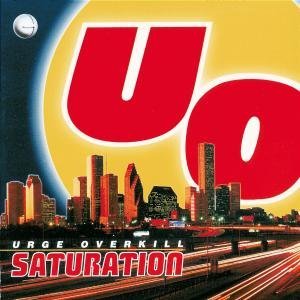
Saturation is the fourth album by American alternative rock group Urge Overkill, released in 1993 and produced by the Butcher Bros. Saturation was Urge Overkill's debut on Geffen Records, and a deliberate attempt at a hit record. The label released "Sister Havana" and "Positive Bleeding" as singles in the US and Europe. "Sister Havana" charted highly on both the modern rock and mainstream rock charts, peaking at numbers 6 and 10, respectively, while "Positive Bleeding" became a minor rock radio hit. As of 2013, Saturation has sold 277,000 copies in the US, according to Nielsen Soundscan.

W.F.O. is the seventh full-length studio album by thrash metal band Overkill, released on July 15, 1994, on Atlantic Records.
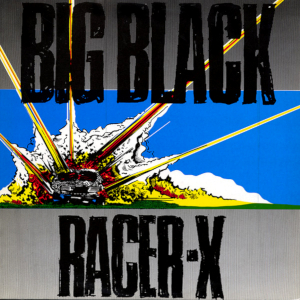
Racer-X is the third EP by American post-hardcore band Big Black. It was released by Homestead Records in 1985 and reissued by Touch and Go Records in 1992.

DGC Rarities Vol. 1 is a rarities album compiled by DGC Records and released in 1994. The songs featured on this album are all B-sides, demos, covers and other rarities recorded by bands on the label. Despite the implications of the title, plans for other volumes were shelved.

Rock & Roll Submarine is an album by alternative rock band Urge Overkill, released in 2011. It was their first album in sixteen years.
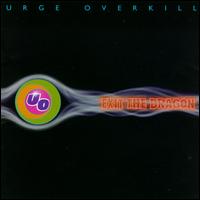
Exit the Dragon is the fifth album by American alternative rock group Urge Overkill, released in 1995. Exit the Dragon is characterized as being a darker album than their previous album, Saturation. It was their final album until 2011 saw the release of Rock & Roll Submarine, sixteen years after Exit the Dragon.
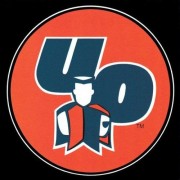
Americruiser is the second album by American alternative rock group Urge Overkill, released in 1990.

Jesus Urge Superstar is the debut studio album by the alternative rock band Urge Overkill. It was released in 1989. The album is noted for its ironic 1970s-worshipping aesthetic, which would become a staple of the band’s core identity.
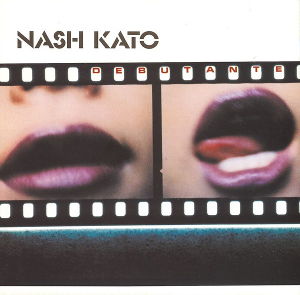
Debutante is the solo debut album by the American musician Nash Kato, released in 2000. It was Kato's first musical release since Urge Overkill's Exit the Dragon; Kato had failed in his attempt to legally secure the UO name. The album's title was suggested by former Urge Overkill bandmate Blackie Onassis.

Stull is the second extended play by the alternative rock band Urge Overkill. It was released in 1992 and would be the band's final major release on independent label Touch and Go Records. The EP's title and cover are direct references to Stull Cemetery, located just west of Lawrence, Kansas. Since the 1970s, urban legends have been spread that the cemetery is one of the seven portals to Hell. Stull also includes a cover of Neil Diamond's song "Girl, You'll Be a Woman Soon", which would later be re-released on the soundtrack to Quentin Tarantino's 1994 film Pulp Fiction. Upon re-issue, Urge Overkill's version of "Girl, You'll Be a Woman Soon" charted at number 59 on the Billboard Hot 100. The Stull EP received largely positive reviews from critics, with Stephen Thomas Erlewine of AllMusic and Johan Kugelberg of Spin both complimenting the record.
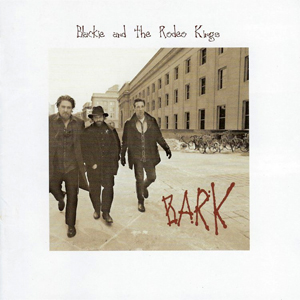
Bark is the third album by Blackie and the Rodeo Kings, released by True North Records on July 7, 2003.




















